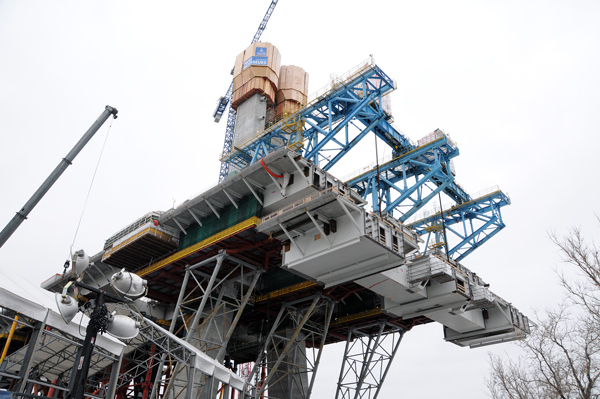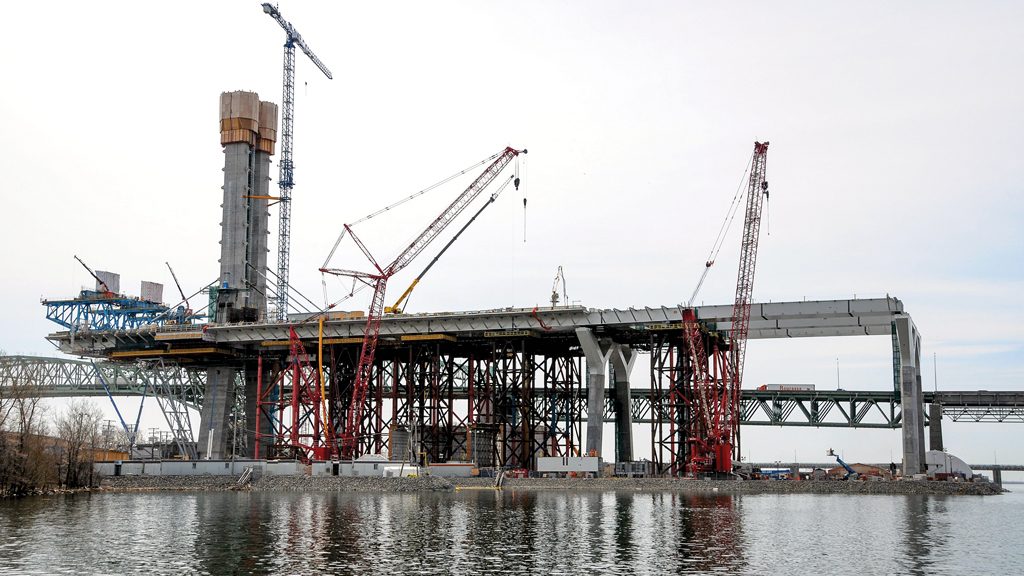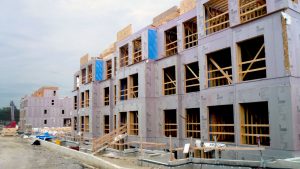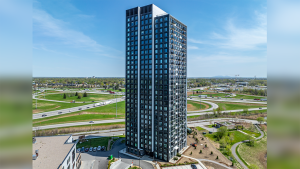Canadian taxpayers may be on the hook for as much as $3 billion as a result of the Liberal government’s 2015 decision to cancel tolling on the new Champlain bridge in Montreal.
That’s how much the private consortium Signature on the Saint Lawrence Group (SSLG) stands to lose in toll revenues, federal auditor general Michael Ferguson reported in his Spring Reports tabled in Parliament May 29.
The federal Infrastructure department is currently in negotiations with the consortium to determine exactly how much SSLG will be compensated for that pre-election decision and others. The auditor general also noted traffic on the bridge will increase by some 20 per cent due to the lack of toll pricing and it has been confirmed compensation for that increased wear and tear is also part of the federal/SSLG talks.
Transport Futures founder Martin Collier, an authority of transportation pricing mechanisms, called the 2015 tolling decision, written into the Liberals’ election platform and implemented following their October 2015 win, “a huge, huge mistake.” Among the reasons offered by Collier to support user-pay tolling to pay for major infrastructure, he said toll roads and bridges reduce congestion, diverting traffic elsewhere so people are not wasting their time sitting unproductively in traffic; they provide revenues to pay for infrastructure; they enable flexible tolling schemes to encourage and discourage use at different times of the day; and they reduce greenhouse gases and promote cleaner public transit.
Opposition infrastructure critic Michael Chong raised congestion, fairness and greenhouse gas emissions as well as the $3-billion hit to the federal pocketbook in committee hearings following the release of the AG’s report.
“By removing the toll from the new Champlain bridge they are creating unfairness, it is a purely political decision that will lead to increased emissions, regional inequities and a $3-billion hole in the fiscal framework,” the Conservative MP said in an interview.
The previous Harper government had supporting road tolling to recoup some of the $4-billion cost of the Champlain build and the revenue mechanism was incorporated into the June 16, 2015 P3 procurement contract signed with SSLG. The decision prompted criticism in the province with then-Montreal mayor Denis Coderre and local NDP MPs among those raising their voices in opposition.
Chong argued the Champlain bridge decision runs counter to similar projects elsewhere across the country, mentioning the $47 toll drivers crossing the Confederation Bridge to PEI have to pay and the tolls proposed to pay for the Gordie Howe International Bridge project in Windsor, Ont.
The Champlain bridge is expected to be completed this December after a 42-month build, with SSLG to undertake maintenance and operation duties over 30 years, while construction of the Howe Bridge, like the Champlain bridge a federally funded P3 project, is set to begin this fall.
A spokesperson for SSLG deferred a request for comments to the federal government.

Federal Infrastructure Minister Amarjeet Sohi was asked for comment and his parliamentary secretary Brook Simpson replied on his behalf via email.
“The Minister has been clear on our tolling policy on federal bridges since taking office,” Simpson noted. “The new Champlain Bridge will be a replacement of an existing non-tolled federal crossing. The current Champlain Bridge corridor…serves as a vital trade route that is reaching the end of its useful life. As such, the Government of Canada, as the owner, has the responsibility to replace the aging infrastructure in order to ensure the safety and security of the travelling public.
“The Gordie Howe International Bridge will be a new crossing and will have a toll to pay for its construction and maintenance over time. It will operate near the Ambassador Bridge, also a tolled crossing.”
Chong rejected those points, noting the original Champlain bridge being replaced was originally tolled until 1990 when it was determined the construction costs had been paid off.
“The second point is, the bridge across the Detroit-Windsor border crossing is a replacement bridge, it will replace the Ambassador bridge, which has been a problem for Canada for many decades. The Ambassador is nearing the end of its life, so we need a replacement bridge.
“This is a political decision they took that was the wrong decision and they are not owning up to it.”
The auditor general’s report said the cancellation of tolls had “far-reaching implications.”
A third issue subject to the compensation negotiations are costs not incurred when tolling infrastructure was removed from the project, an estimated savings to SSLG of $300 million.
Chong said he had attempted to pin down the government on the traffic issue during committee hearings but was told the government would not have figures until the fall.
He told the Public Accounts committee on June 7 he had calculated 10 million more cars crossing the Champlain bridge each year would produce up to 46 megatonnes of additional emissions.
“The government talks a good game on climate change but it is not delivering,” Chong said.
Chong countered another Liberal argument, that the Champlain bridge was essential for local commuters, more so than the Howe bridge, saying tens of thousands of Windsor residents cross to Detroit to work each day.
“That is a commuter bridge as much as the Champlain bridge is,” he said.










Recent Comments